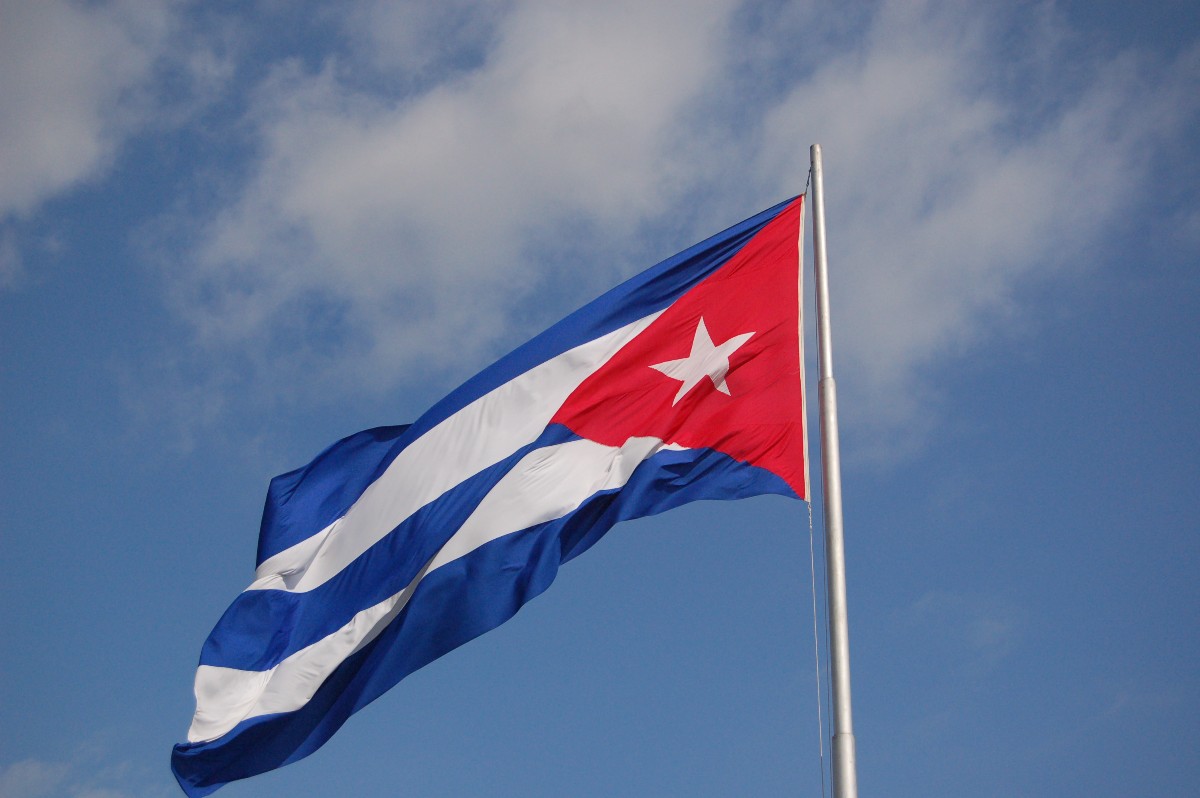
Event Recap: The Cuba-U.S. Bilateral Relationship: New Pathways and Policy Choices
Podcast: Play in new window | Download
Subscribe: Apple Podcasts | RSS
The American Security Project hosted a public event on bilateral relations between the United States and Cuba. Joining the American Security Project were authors Michael J. Kelly, JD, Erika Moreno, PhD, Richard Witmer, PhD, Jonathan C. Benjamin-Alvarado, PhD to discuss the United States, Cuba, and the relationship between the two countries, subjects they recently addressed in their new book. In addition to the panel of authors, the event featured opening remarks from Ambassador Jeffrey Delaurentis. American Security Project’s COO Andrew Holland also joined these distinguished guests to moderate the discussion.
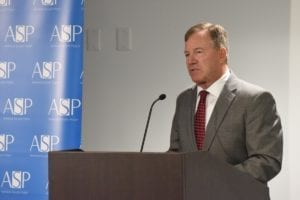 Before the panel, American Security Project CEO Brigadier General Stephen A. Cheney (Ret.) provided a brief introduction. In his remarks, he mentioned how the American Security Project’s interest in the area of US-Cuban relations dates to the December 17th, 2014 return of Alan Gross from Cuba. He recounted how the American Security Project’s involvement of in the area has expanded greatly in the following years, through efforts like its Cuba Engagement program and organizing the visit of a delegation of retired senior military leaders to Havana. He highlighted the ASP’s emphasis on the importance of dialogue and trade in US-Cuban Relations.
Before the panel, American Security Project CEO Brigadier General Stephen A. Cheney (Ret.) provided a brief introduction. In his remarks, he mentioned how the American Security Project’s interest in the area of US-Cuban relations dates to the December 17th, 2014 return of Alan Gross from Cuba. He recounted how the American Security Project’s involvement of in the area has expanded greatly in the following years, through efforts like its Cuba Engagement program and organizing the visit of a delegation of retired senior military leaders to Havana. He highlighted the ASP’s emphasis on the importance of dialogue and trade in US-Cuban Relations.
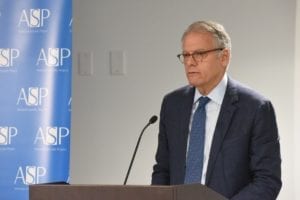 Following these remarks, Ambassador DeLaurentis introduced the discussion. Ambassador DeLaurentis discussed how in recent years there have been very minimal relations between the United States and Cuba. He also pointed out how the subject of US-Cuban relations is not only a foreign policy issue, but also a domestic one. He emphasized how relations between the two countries are not confined solely to the political realm, and how they are instead a very personal issue for many people. While he acknowledged the subject was one where “reasonable people disagree,” in his closing he addressed there is a potential for things to change in the countries’ relationship. Although he stated that the prognosis for a good short-term relationship between the two countries is “negative,” he also stated we could look back to the previous thaw in relations to picture what improved relations might look like. He explained US-Cuban relations as a “process,” and highlighted the importance of the type of work the panel has been doing in moving the process forward.
Following these remarks, Ambassador DeLaurentis introduced the discussion. Ambassador DeLaurentis discussed how in recent years there have been very minimal relations between the United States and Cuba. He also pointed out how the subject of US-Cuban relations is not only a foreign policy issue, but also a domestic one. He emphasized how relations between the two countries are not confined solely to the political realm, and how they are instead a very personal issue for many people. While he acknowledged the subject was one where “reasonable people disagree,” in his closing he addressed there is a potential for things to change in the countries’ relationship. Although he stated that the prognosis for a good short-term relationship between the two countries is “negative,” he also stated we could look back to the previous thaw in relations to picture what improved relations might look like. He explained US-Cuban relations as a “process,” and highlighted the importance of the type of work the panel has been doing in moving the process forward.
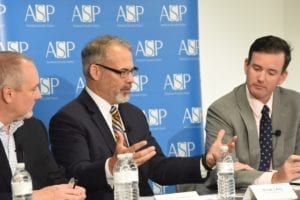 Professor Kelly discussed the genesis of the project. He remarked that there are a range of policy choices that need to be made in D.C., in Havana, and in both countries. He mentioned how the book was an effort to survey the policy options available, and to put these options out in a book for the issue to be addressed in the upcoming US elections. He portrayed the book as an effort to shape the framework of bilateral relations, so that the US could move to “take relations out of the freezer.” The book is an effort to identify the pathways the United States could follow to pursue improved relations.
Professor Kelly discussed the genesis of the project. He remarked that there are a range of policy choices that need to be made in D.C., in Havana, and in both countries. He mentioned how the book was an effort to survey the policy options available, and to put these options out in a book for the issue to be addressed in the upcoming US elections. He portrayed the book as an effort to shape the framework of bilateral relations, so that the US could move to “take relations out of the freezer.” The book is an effort to identify the pathways the United States could follow to pursue improved relations.
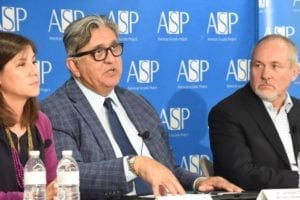 Dr. Benjamin-Alvarado addressed the transformational nature of the changes that have been occurring in Cuba since the 1990s. While the Obama effort to step back from Cold War tensions between the United States and Cuba signified a generational change in American policy toward Cuba, Dr. Benjamin-Alvarado emphasized how a similar change could also occur in Cuba as a new generation of Cuban leaders charts the course of relations between the two countries. He also expressed his optimism about the situation on the ground in Cuba. While noting there have been significant gains, he also pointed out the much work remains to be done.
Dr. Benjamin-Alvarado addressed the transformational nature of the changes that have been occurring in Cuba since the 1990s. While the Obama effort to step back from Cold War tensions between the United States and Cuba signified a generational change in American policy toward Cuba, Dr. Benjamin-Alvarado emphasized how a similar change could also occur in Cuba as a new generation of Cuban leaders charts the course of relations between the two countries. He also expressed his optimism about the situation on the ground in Cuba. While noting there have been significant gains, he also pointed out the much work remains to be done.
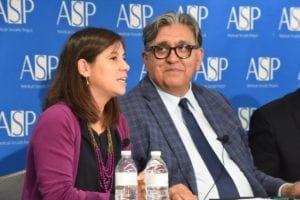 Dr. Moreno pointed out that when considering the relationship between the United States and Cuba we should remember that there are many forms of diplomacy. While we typically focus on official political diplomacy, it is important to consider how economic and more personal campaigns can also serve as forms of diplomacy. She noted that change can happen without official interactions, but the pace of this change will be slow.
Dr. Moreno pointed out that when considering the relationship between the United States and Cuba we should remember that there are many forms of diplomacy. While we typically focus on official political diplomacy, it is important to consider how economic and more personal campaigns can also serve as forms of diplomacy. She noted that change can happen without official interactions, but the pace of this change will be slow.
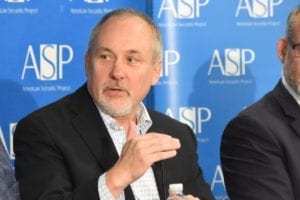 Dr. Witmer addressed changes occurring in American electorate. While it had previously been taken for granted that the votes of south Florida electorate would be dominated by the issue of US-Cuban relations. He highlighted how generational change has begun to shift that. He pointed out that for many voters of the newer generations the US-Cuban issue is just one among the many of other issues that are important to these voters. He pointed out how diplomacy at the grass-roots level has begun to bubble up and change perceptions about the issue of relations between the two countries. He remarked that while many assume that a second Trump term would represent a continuation of his most recent policies toward Cuba, it is possible that there could be a pivot in the approach Trump would take in a second term. He noted that Trump’s approach toward North Korea had dramatically changed and said a similar change could potentially occur.
Dr. Witmer addressed changes occurring in American electorate. While it had previously been taken for granted that the votes of south Florida electorate would be dominated by the issue of US-Cuban relations. He highlighted how generational change has begun to shift that. He pointed out that for many voters of the newer generations the US-Cuban issue is just one among the many of other issues that are important to these voters. He pointed out how diplomacy at the grass-roots level has begun to bubble up and change perceptions about the issue of relations between the two countries. He remarked that while many assume that a second Trump term would represent a continuation of his most recent policies toward Cuba, it is possible that there could be a pivot in the approach Trump would take in a second term. He noted that Trump’s approach toward North Korea had dramatically changed and said a similar change could potentially occur.





